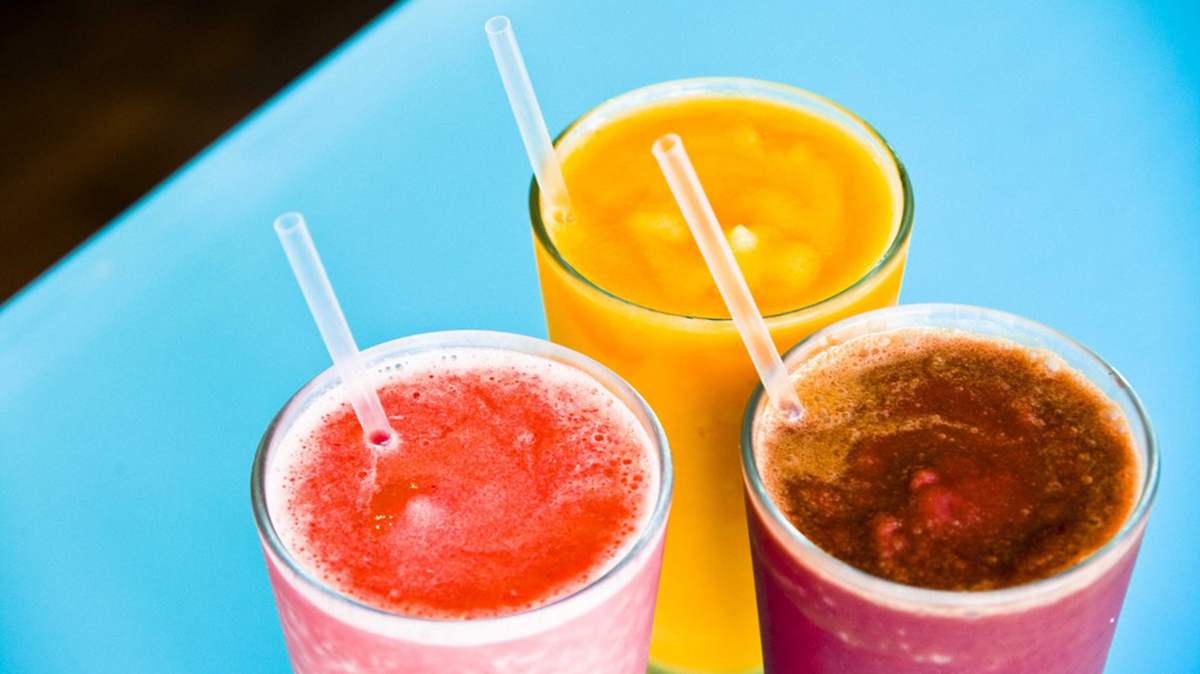Table of Contents
We all know the importance of getting in our 5 servings of fruit and vegetables per day. When it comes to bumping up our fruit intake, making smoothies (blended fruit drinks) is a fun and nutritious way to go. Smoothies are easy too- all you need is a blender (even a hand held one will do for most smoothies), some fresh fruit, and some other ingredients like yogurt or nuts to jazz them up.

Some Smoothie Essentials
Fresh Fruit
Most smoothies involve the use of fruit, but in some cases vegetables also make a valuable addition. Nutritionally, an average portion of fruit contains about 15 grams of carbohydrate (about the same amount as a slice of bread). Fruit carbohydrate is in the form of fructose, a simple carbohydrate.
Fruit is also rich in phytonutrients, like polyphenols and flavonoids, mist of which are concentrated in the skin of fruits. Unlike extracted fruit juices, fruit smoothies can be made with the skins intact. Fruit is generally very low in calories, fat and protein.
Some of the most commonly used fruits in smoothie recipes include:
- Bananas. Bananas add consistency to smoothies, which is why they are such common ingredients. Bananas are loaded with vitamin B6, containing about 30% of the Daily Value in one banana. Bananas are also rich the mineral potassium (1 bananas contains about 450mg). They are a good source of vitamin C and fibre too. Health benefits of bananas include heart disease prevention, stomach and colon health.
- Pineapple. Just one thick slice of pineapple contains over 100% of the daily value for vitamin C. It is also a good source of vitamin B6 and thiamine. Pineapple is a good source of magnesium and potassium and an exceptional source of manganese (77% of the daily value per slice). Pineapple contains a special group of digestive enzyme called bromelain. Bromelain is found mostly in the stem and core of the fruit.
- Papaya. Papaya is an excellent source of vitamin C, with one medium papaya containing about 150% of the Daily value. It is also a good source of vitamin A, in beta-carotene form. It is also a good source of vitamin K, vitamin E and folate as well as the mineral potassium. It is a good digestive aid.
See Also: Fruits And Veggies: 7 Superfood Smoothie Recipes
- Berries. The health benefits of strawberries are related to their high antioxidant capabilities. The phytonutrients in strawberries are called anthocyanins and they are responsible for their bright reddish hue. Strawberries are also an excellent source of vitamin C, containing over 150% of the Daily Value per cup. They are also a good source of manganese. Strawberries have one of the lowest glycemic indexes (GI) of any fruit. Strawberries are also very low calorie, with the calories of strawberries being just 49 calories per cup.
- Photo courtesy of Ken Hawkins by Flickr : www.flickr.com/photos/khawkins04/5477181664
- Photo courtesy of Lars Plougmann by Flickr : www.flickr.com/photos/criminalintent/7867755072


Your thoughts on this